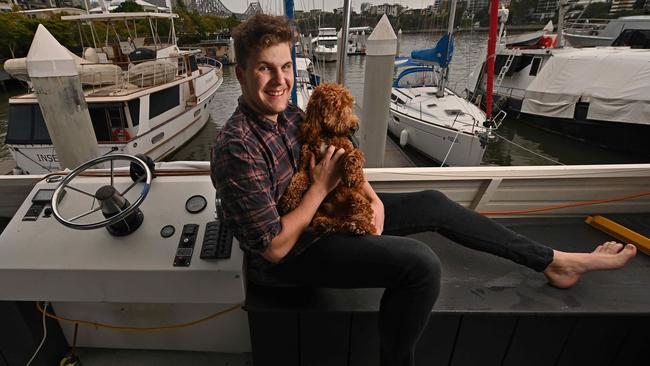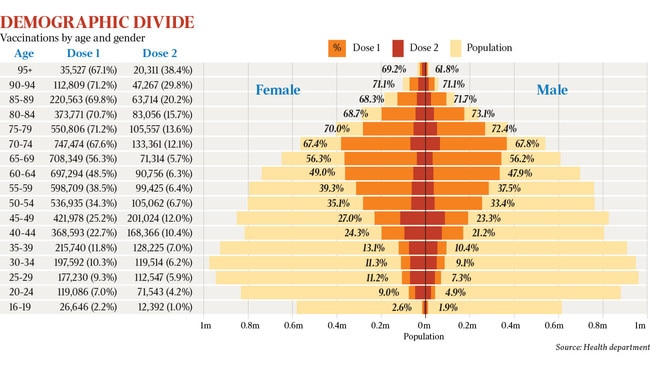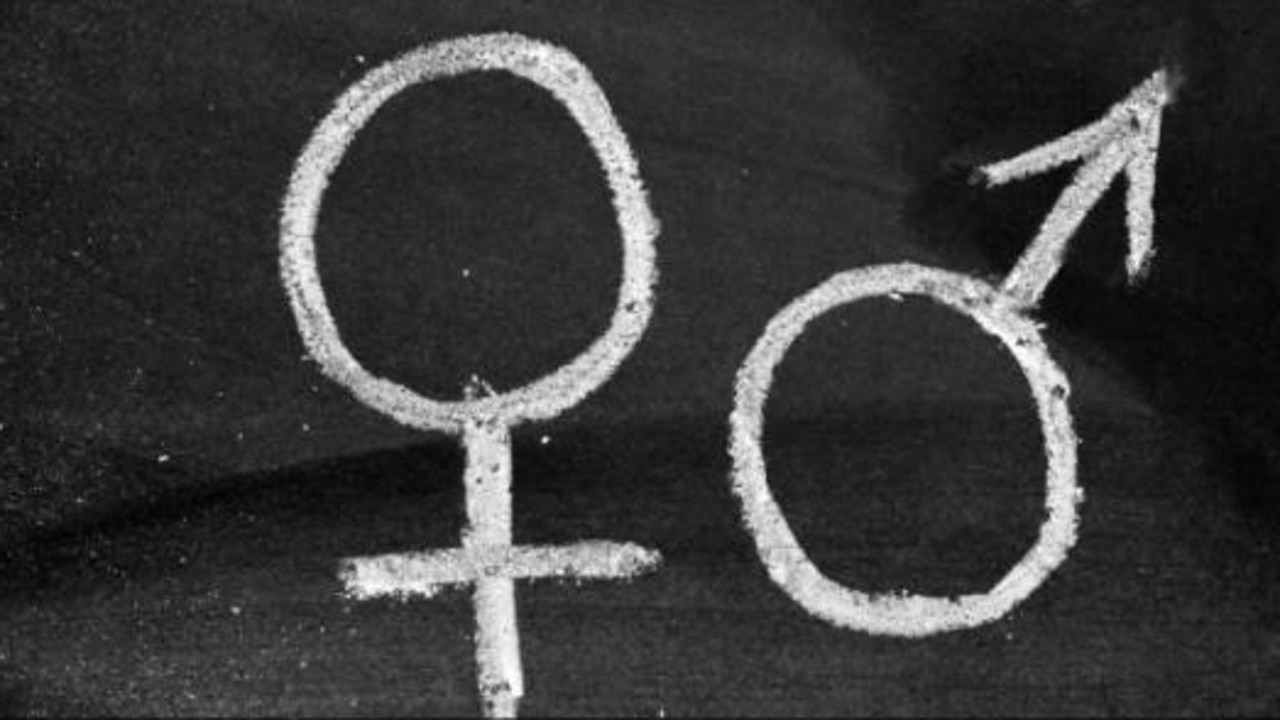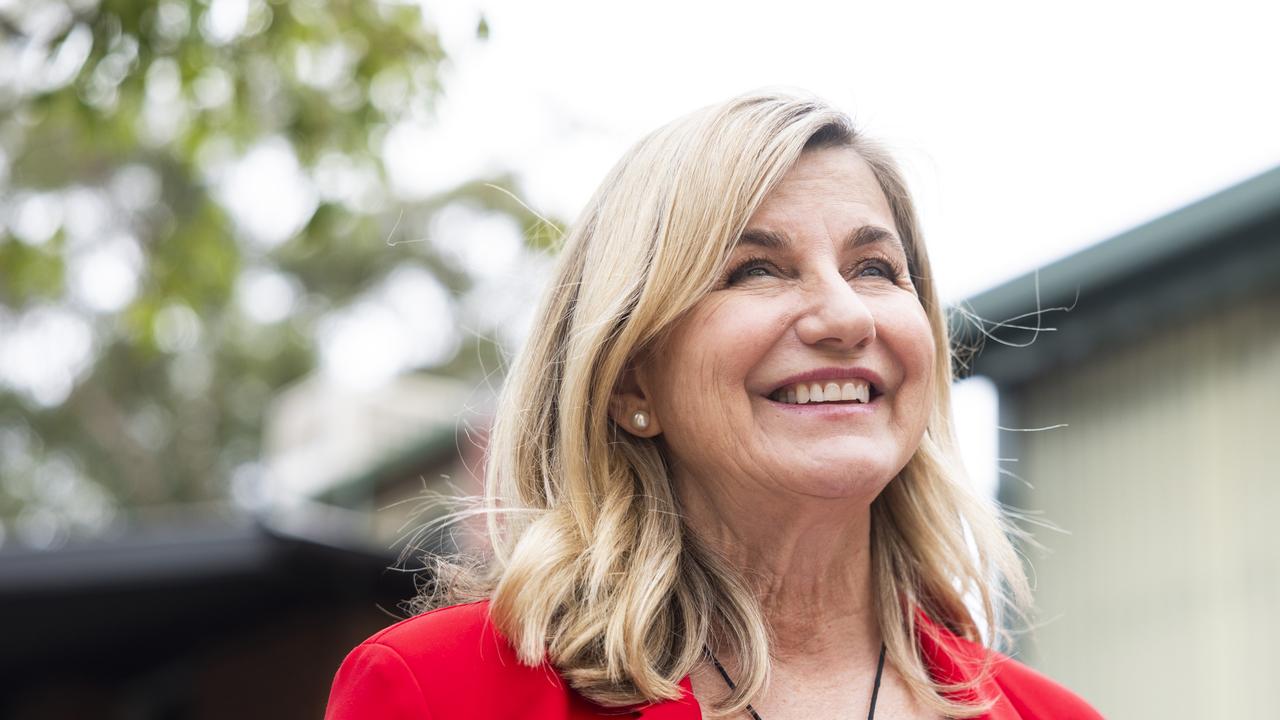Young roll up sleeves for Covid vaccine, but old shy away
Thousands of young Australians aged under 40 have flocked to be immunised with the AstraZeneca vaccine but there is apparent intractable resistance among the nation’s most vulnerable older people.

Thousands of young Australians aged under 40 have flocked to be immunised with the AstraZeneca vaccine but there is apparent intractable resistance among the nation’s most vulnerable older people to getting a shot, with a third of people aged over 70 still unvaccinated.
More than 2600 young people have been vaccinated with the AstraZeneca jab since Scott Morrison encouraged young people to consult with their doctor to weigh up the risks and benefits of being vaccinated now instead of waiting months for the Pfizer shot, despite strident resistance from Queensland authorities.
But in the first published figures that break down vaccination rates by age, it has been revealed that only 67.6 per cent of those aged between 70 and 74 have received at least one dose of vaccine.
The figure is slightly higher among those aged 75 to 79 at 71.2 per cent, while 70 per cent of people in their 80s have had a vaccine.
The rates are particularly worrying for those in their 60s, with less than half of those aged 60 to 65 having received a shot.
Confusion and bickering over the vaccine continued on Thursday, with Queensland’s chief health officer doubling down on inflammatory comments that young people faced the risk of death from the AstraZeneca jab, and the federal government’s vaccine chiefs appearing to contradict each other on whether young people should get it.
Commander of the Vaccination Task Force Lieutenant General John Frewen stressed that the advice of the Australian Technical Advisory Group on Immunisation was that young people could get the AstraZeneca jab if they made that decision in conjunction with their general practitioner and were fully aware of the risks.
“The ATAGI advice has remained unchanged, the medical advice has remained unchanged, and that is that people can make informed consent about whichever of the vaccines are available,” General Frewen said.
“We have additional AstraZeneca available. In the past two days since the Prime Minister made this announcement, 2616 Australians under 40 have chosen, with informed consent, to have AstraZeneca. That’s 2600 Australians who feel, right now, they would rather have the available vaccine than wait. So I think all Australians have that right.”
However, the co-chair of ATAGI took a far more conservative stance, weighing in for the first time on the issue since a political brawl broke out over young people and the AstraZeneca shot.
Christopher Blyth reiterated that the group’s advice was that Pfizer is the preferred vaccine for young people and those under 40 should not get AstraZeneca except in “pressing circumstances”.
“I do not believe at this stage that young people should be receiving AstraZeneca unless circumstances press for that,” Professor Blyth told ABC radio.
“There are some situations where they would be warranted, but they are quite small.”
The federal government for the first time on Thursday published a vaccination breakdown by age which shows just 7.92 per cent of the eligible population – those aged over 16 – were fully vaccinated. The data also shows that Wednesday was the highest day for vaccine doses in Australia’s rollout so far, with 161,390 shots administered.

The breakdown shows 15.45 per cent of Australians aged over 70 and 9.37 per cent of those aged over 50 have received both of their vaccine doses.
ANU infectious diseases physician Peter Collignon said he was most concerned about the over-70s cohort, with just over two thirds – 69.55 per cent – having received a first dose. The number of people aged 60-64 who have received at least one dose is only 48.5 per cent, rising to just 56.3 per cent for those aged between 65 and 69.
Professor Collignon said Australia should aim for 90 per cent of the over-70s to have received a first jab within the next month.
“That’s the group that is most at the risk of death. So they’re the ones who really have to get out there and get vaccinated,” Professor Collignon said.
“If you get two doses you get 90 per cent protection, including with the Delta variant, against being hospitalised and 95 per cent plus of dying.
“We really need to convince that age group to get out and get vaccinated,” he added.
Brisbane hospital worker Samuel Scott, 22, received the AstraZeneca jab alongside his sister, mum and grandmother in the first cache of vaccines administered. However, after receiving the second dose of the vaccine this week, Mr Scott said he would not be recommending the same vaccine to his friends, following advice given by Queensland chief health officer Jeannette Young.
“I would tell them to wait for a better option,” he said. “It still gives me a little bit of anxiety walking around day to day because you’re hearing AZ is getting better, then it’s getting worse. They’re changing the facts for it every day.
“Unless Scott Morrison has a history in the medical field, I’d rather hear advice from the chief health officer than the Prime Minister,” he added.
West Australian Premier Mark McGowan this week said there were now few people aged over 60 booking in for their first dose of AstraZeneca. He called for Pfizer to be made available to all age groups, suggesting that there was a significant proportion of those aged over 60 who would refuse to get AstraZeneca at all.
The head of Melbourne University’s School of Population and Global Health, Nancy Baxter, said the use of AstraZeneca for the older cohorts partly explained the numbers of unvaccinated older Australians.
Professor Baxter said a supply issue – with Pfizer doses now set to rise rapidly from July to October – as well as vaccine hesitancy had contributed to the rates of unvaccinated people.
“There needs to be a more direct ad campaign, outreach, a lot of things that have to gear up if we want to reach the 60 to 70-year-old group that seems more resistant,” she said.
“The outreach and communication strategy needs to change entirely. It seems like they (the government) know AstraZeneca will phase out so they’re not bothering but there’s a lot of people we can get vaccinated right now.”
Australia is set to receive as many as 2.3 million Covid-19 vaccine doses from Pfizer every week by the start of October, when the government will phase out the use of the AstraZeneca vaccine.
Additional reporting: Mackenzie Scott



To join the conversation, please log in. Don't have an account? Register
Join the conversation, you are commenting as Logout